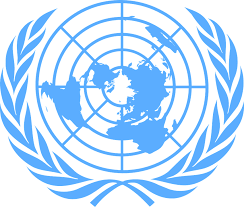On February 20, 2009, the United Nations observed the first “World Day of Social Justice” to spread awareness about the connection between social justice and poverty eradication. The relevant facts about this day can be helpful for the preparation of the IAS Exam (Social Justice).
See previous ‘This Day in History’ in the linked article.
| Aspirants can cover the topics mentioned in the UPSC Syllabus by following the below-mentioned links: |
World Day of Social Justice 2024
20th February 2024 is the 16th edition of World Social Justice Day. United Nations (UN) works on the core mission of the promotion of human development and dignity. Through World Day of Social Justice, it reiterates its global mission of sustaining peaceful coexistence of nations.
World Day of Social Justice 2024 Theme: “Bridging Gaps, Building Alliances“
Similar to World Social Justice Day, there are other important days, dates and events of 2024 which can be found in the linked article.
World Social Justice Day 2020
It was celebrated on 20th February 2020. The theme of the World Day of Social Justice 2020 was “Closing the Inequalities Gap to Achieve Social Justice.”
Important Facts published by the UN over the state of social justice across the world:
- On Employment – The average employment growth is 0.1 percent annually since 2008. It was 0.9 percent between 2000 and 2007.
- On Formal Employment:
- There is no formal employment contract for almost 60 percent of all kinds of workers.
- The share of wage and salaried workers is declining which is substantiated with a fact that less than 45 percent of such workers are employed on a full-time or permanent basis.
- On Unemployment – By 2019, the number of people out of work will be 212 million. (World Employment and Social Outlook – Trend 2020 stated that 188 million people were reported to be unemployed in 2019.)
- On Job Creation – There is a need for the creation of 60 crores new jobs by 2030.
Theme of World Social Justice Day 2019 – “If you want Peace and Development, Work for Social Justice.”

Background of World Day of Social Justice
- In 1995, the World Summit for Social Development was conducted at Copenhagen, Denmark by the United Nations. This summit saw more than a hundred political leaders from different countries resolve to take positive action for poverty eradication, full employment, and create stable, just and safe societies.
- This summit resulted in the Copenhagen Declaration and Programme of Action.
- Another important resolution was to keep people at the centre of developmental plans.
- In February 2005, the member states of the UN reviewed the Copenhagen Declaration and Programme of Action at a meeting of the Commission for Social Development in New York.
- A couple of years later in 2007 November, the UN General Assembly decided to observe 20th February every year as the World Day of Social Justice starting from the year 2009.
- This day is observed to promote social integration and full employment, and eradicate poverty in the world.
- The objective behind observing this day is to promote the idea and make governments everywhere work for social justice. This implies that growth is for all and no one group/groups of society should be left behind, whether it is within a country or worldwide.
- There should be equitable distribution of wealth and resources. Employment opportunities should be extended for all. Special concern areas are gender equality, and rights of indigenous people and migrants.
- Economic development must be coupled with social justice and equality.
- It also emphasises ‘decent work’, i.e., work that respects human dignity and freedom, and also ensures adequate remuneration.
- This day is not a public holiday but a global observance led by the United Nations.
- Every year, the UN and the International Labour Organisation (ILO) observe this day with different themes highlighting the focus idea of that year. This year it is “Quest for Social Justice”.
- The current year’s theme focuses on the 150 million migrant workers of the world, of whom 44% are women.
- Migrant workers, in their quest for decent employment, often end up getting trapped in jobs that don’t pay even the minimum wage, have horrible, unhygienic working conditions and detrimental to the person’s mental and physical health. Other issues are forced labour, bonded labour and child labour.
- The ILO seeks to encourage governments to adopt fair labour migration governance.
| Also on this day
1868: Newspaper Amrita Bazar Patrika was founded – Read about the important newspapers during Indian freedom struggle in the linked article. 1950: Death of independence activist and the brother of Subhas Chandra Bose, Sarat Chandra Bose. 1968: Asia’s first heart transplant was conducted by Dr Prafulla Kumar Sen in the KEM Hospital at Mumbai. |
UPSC Preparation:
Comments